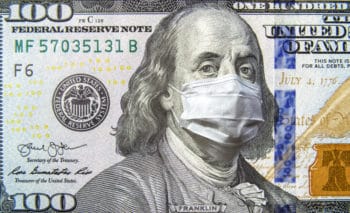
These problems aren’t going to instantly resolve when businesses begin to reopen and people begin to return to work. Some businesses likely won’t reopen, and others may scale back operations. Individuals who have been out of work for weeks or months may be playing catch-up, depending on their circumstances and access to newly-created government benefits designed to help bridge the gap and sustain the economy during the shutdown.
No one knows exactly what to expect: not how long we’ll have to restrict our movements nor exactly how much of a toll it will take on our personal finances and on the larger economy; not what additional benefits or relief might be offered by the state or federal government, nor how quickly things like evictions and debt collection actions will spring back to life when moratoriums expire and courts return to business as usual. That uncertainty makes it tough to plan, but financial planning is all the more important when you don’t know what to expect.
Here are some steps and precautions you can take today and throughout this crisis to help maintain stability and prepare for the transitions ahead.
Financial Steps You Can Take Today
Assess and prioritize your bills and expenses
If you’re still working, are receiving furlough pay from your employer, or are collecting enhanced unemployment benefits, you may be in a position to keep all of your bills current. If you can, do–we’ll talk about that more in # 4. But, if you have a gap or reduction in income and may not be able to make regular payments, it’s important to be intentional about what you pay and what goes on the back burner. You can’t afford to make payments randomly, based on which due date rolls around first or which creditor applies the most pressure. Inventory your debts and living expenses and decide in advance what’s most important to you and what can wait if it has to.
Don’t make assumptions
Some local governments, including Los Angeles, are temporarily restricting or prohibiting residential evictions. Student loan payments are being temporarily waived. Many creditors are reaching out to let borrowers know they’re willing to work with you if you’ve been impacted by either Covid-19 or the shutdown. But, that doesn’t mean you can just not worry about your rent or other bills during this time. Problems have already been reported with the Los Angeles eviction ban, and though many private creditors have expressed willingness to make accommodations, that doesn’t mean they’ll just ignore missed payments. Make sure you understand the protections available to you and what, if anything, you must do to invoke them. If you’re unable to make payments, contact the creditor, your landlord, or the service provider right away.
Educate yourself about the resources available to you
The federal government is sending out money, but whether and how soon you get that money depends in part on your most recent tax filing and in part on whether the government has your direct deposit information. Independent contractors are temporarily eligible for unemployment benefits, but as of April 8 the system hasn’t been hammered out yet and the California Employment Development Department is asking contractors to hold off on applying. The federal government has called a halt to evictions, but it only applies to properties with certain types of government-backed mortgages. A 30-second overview on the news or a shared Facebook post isn’t likely to supply sufficient information to allow you to protect yourself and your family. Do your homework and take the steps required to secure whatever benefits are available to you.
Understand what it means that this relief is temporary
If you are relying on a protection like an eviction ban or the closure of civil courts, keep in mind that the further behind you are when operations start to shift back to normal, the greater the risk. We don’t yet know when we’ll return to business as usual, or whether that will happen all at once or in stages. We don’t know whether there will be any protections to allow people who have fallen behind on rent and other obligations to catch up, or whether we’ll see some landlords serving eviction notices as soon as restrictions–legal and practical–are removed. If you’re able to keep all of your obligations up to date during the shutdown, do. If you’re able to set aside money for the as-yet-uncertain future, do. And, if you’re not able, stay as on top of your obligations as you can and keep in touch with those you owe.
Though no one knows exactly what to expect in the coming months, most experts agree that it’s going to be rocky. Some are predicting a wave of retail and personal bankruptcies in the spring, meaning a diminished job market when the world reopens for business and a spike in consumer bankruptcies this summer. The best way to prepare for the unknown is to take responsibility now, educate yourself about your options and available resources and reassess your situation and priorities on a regular basis.
